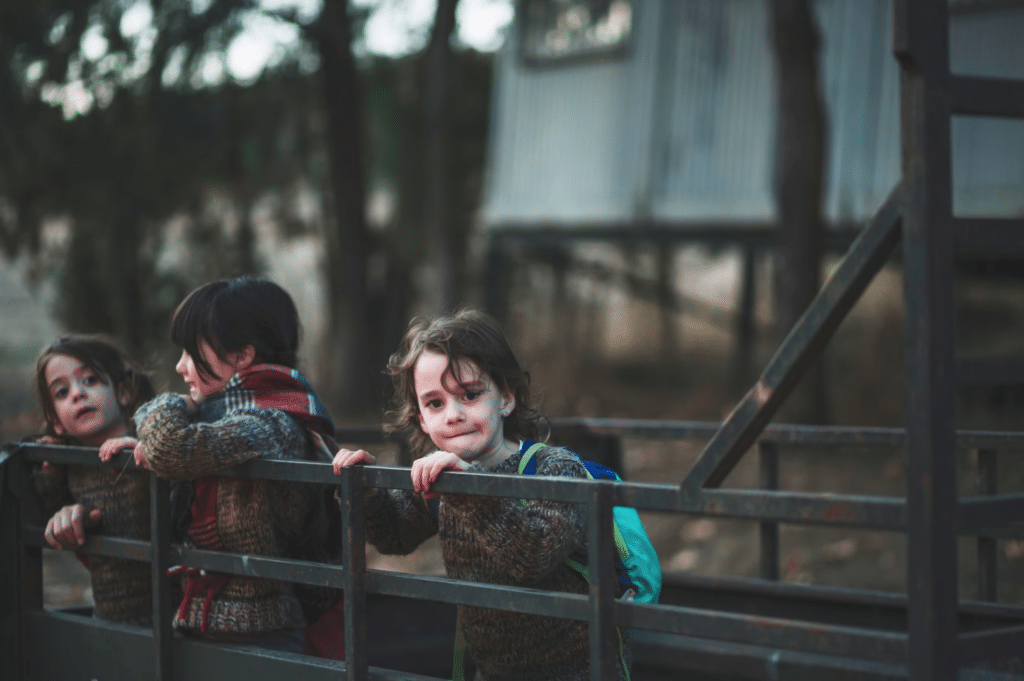I was 9 years old when Iraq was invaded by the US and its allies.
I remember grey airplanes piercing through the sky. And once they’d landed, the massive metal tanks crawling from the planes and driving through residential streets. As the bombing and looting began, our schools were closed indefinitely and our learning halted. Many schools were destroyed during the war, and the remaining schools had to cater for an exponentially larger number of students.
Our education eventually resumed in oversized, under-resourced classrooms, a pale version of what it used to be. I witnessed cousins and classmates face the harsh reality of war, dropping out of school to work in scrap metal collection or to sell tissues and water bottles on street-corners.
Education has been amongst the numerous casualties of the protracted conflict in Iraq, starting from the American invasion in 2003 and continuing with the subsequent abhorrent evil of ISIS.
It makes me shudder to think of the arbitrary set of circumstances that protected me from the fate of many of my peers and helped me receive an education in Australia. My school was bombed on a Friday when there were no students, while my younger sister’s school was invaded by militias just an hour after the students had been evacuated. Seeing the violence invading the sacred space where she protected her daughters, my mother decided to leave Iraq. We hired a taxi and fled to Jordan with barely any belongings.
Unfortunately, right now, there are 222 million children who are in the exact same situation that I was in 20 years ago. They are trapped and are missing out on an education, year after year, due to armed conflict, forced displacement, climate-induced disasters and protracted crises. This includes First Nations children here in Australia who have been disproportionately impacted by flooding and fires in Australia. It’s our moral duty to ensure that their lives, potential, future independence and joy are not squandered.
Education Cannot Wait (ECW) is the United Nations’ global fund for education in emergencies and protracted crises. The fund is now up for replenishment, providing an opportunity for the Australian government to renew its investment. It is critical for Australia to play a role in protecting every child’s right to an education by stepping up and making a contribution to ECW.
This week, the humanitarian and girls’ rights organisation Plan International Australia published an important report on the profound impacts that education disruptions have on children – particularly girls. The statistics are alarming: Today, 222 million children are affected by war, disaster and displacement, with their education under serious threat.
More than 78 million children are already out of school globally, and adolescent girls in conflict zones are 90 per cent more likely than their peers in non-conflict settings to be out of school.
Through my work at Rahma Health, an Arabic-language resource for expecting parents throughout their pregnancy, I work with Banan Badeaa, a pharmacist and lactation consultant living and working in Baghdad. Banan works directly with many 12 to 18-year-olds who come to her for pregnancy and breastfeeding support. Since the war in 2003, girls across the country have been dealt blow after blow. Those who had been orphaned became a burden to their extended family, who in many instances, were pushed to take them out of school and marry them off as soon as they reached puberty. ISIS also caused an avalanche of internal displacement, pushing many families to halt their children’s education. It’s a gut-wrenching experience to witness children forced to raise other children.
Girls grieve the loss of their schooling. Maryam*, a 16-year-old mother of two who was pushed into child marriage following the death of her parents, sits at the window daily, watching girls her age walk to school. She envies their school bags, their books, their school shoes. She cries so much when she sees cohorts of young women graduate. She knows she could have achieved something remarkable with her life if only she had been given the chance to complete her education.
In Afghanistan, girls face an utterly bleak situation. Under Taliban rule, families have been removing their daughters from school, fearing for their safety. Most schools do not permit girls to enroll, and girls can risk arrest if they attend formal or informal classes. In Somalia, many families are withdrawing their children from school to help them search for food and water, as Somalia faces one of the worst famines in 40 years. Students describe not being able to learn or concentrate in class due to their hunger.
In Sudan, violent clashes and fighting has broken out in Khartoum and many surrounding states. Schools are closed, with families trapped inside their homes, terrified as stray bullets blast through windows and explosions reverberate around them. The children don’t know when it will be safe to resume their education – and with electricity cut in many neighbourhoods, online learning is not an option.
It’s imperative that we support the millions of girls and boys around the world who are facing these crises. From inside makeshift refugee settlements, damaged walls of classrooms and communities torn apart by war, these 222 million children are desperately holding on to the hope that education will allow them to realise a better future for themselves and their communities.
As organisations such as Plan International Australia have emphasised, now is the time for Foreign Mininster Senator Penny Wong and Minister for Defence Industry Pat Conroy to commit $24 million over three years to the UN’s ECW, and do our part to help ensure young people in Somalia, Syria, Turkiye and other emergency settings can access education and transform their lives.
*Name changed to protect the identity


